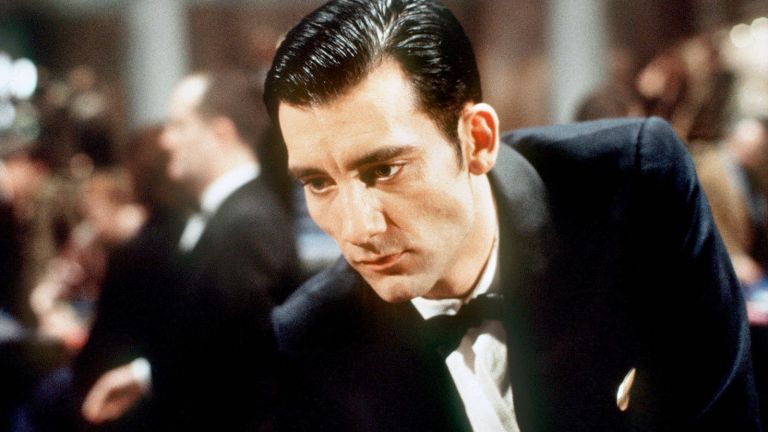How Croupier Got Shut Out of the Oscars
Featuring an unforgettable performance from Clive Owen, Croupier became a critical darling when it was released in the US. The film was tipped for Oscars success, but some odd events sealed its fate.

1998’s Croupier was that rare thing: a British film that had a muted response in the UK but achieved much more success over in the U.S. The low budget movie stars Clive Owen and follows the spiral of a struggling writer who takes a job in a local casino and becomes the inside man in its robbery. It’s a simple enough story, but the slick neo-noir execution is deft, and Owen’s subtle central performance won over critics stateside, with Roger Ebert comparing it to Sean Connery’s own “physical reserve” as James Bond.
“It was incredibly successful in America, much to my surprise,” Croupier director Mike Hodges tells Den of Geek now. “There were hardly any advertising campaigns, so it was one of those delightful things where it was totally on word of mouth. It went from 17 cinemas to 300 or something. I wouldn’t call it a blockbuster, but it did very well at the box office.”
Indeed, Croupier only cost £3m to make and grossed over $7m globally after glowing reviews garnered it attention outside of the UK. It was soon hitting “best of year” lists and was tipped as a dark horse for Oscars glory. But that was not to be, thanks to Rule 3, Section 3 of the Academy Awards, which was originally drafted to stop old films from competing with new ones.
Unbeknownst to Hodges, Croupier had previously played in Singapore for a fortnight in July 1998, and for a movie to have been eligible for that year’s Oscars, it must not have been exhibited or broadcast outside the United States before Jan. 1, 1999. Publicists working for rival Oscar contenders had found out about the brief Singapore release and swooped in with a tip-off.
“People like Miramax, when they saw a competitor, they got researchers to scour the worlds of exhibition places, like cinemas and late night TV, to find if they’ve been shown beyond the rules of the Academy,” Hodges explains. Though an appeal from the film’s marketing strategist initially snagged the film a waiver from the Academy, Croupier would then suffer a death blow courtesy of Reel columnist Jeffrey Wells (via LA Times) who, after another tip off from a top Oscar publicist, published news that the movie had also once aired on Dutch TV in November 1998.
The Academy was polled yet again on how to handle Croupier. Executive director Bruce Davis maligned that “granting the film a concession unprecedented in the Academy’s history was going to open a very full Pandora’s box for us, to bend two rules for one picture would begin to look not like mercy but prejudice,” and the vote was reportedly overwhelming. Croupier’s hopes for a place in the Oscars race were dashed, but Hodges, who also directed classics like Get Carter and Flash Gordon, doesn’t seem to hold a grudge.
“Having attended one Oscars ceremony as a favor to a friend who was up for Best Supporting Actress, I’m actually deeply grateful. The food was terrible! You get into Los Angeles, you get in your tuxedo, you leave your home about midday, and then you get into a traffic jam for six hours. When you get there, the sun’s burning down outside. It was a really grim experience.”
In fact, he says, he’s lucky that Croupier was even released at all. “Back then, the BFI were re-releasing Get Carter, and I went to them and said, ‘Look, that’s my first film. This is my latest film, Croupier.’ I showed it to them, they liked it, and they did a very small distribution. So the film was saved, otherwise it would have gone straight to VHS, I think.”
Hodges found that he wasn’t able to capitalize on the success of Croupier, but it certainly helped to launch the career of its star. Owen would go on to feature in the likes of Robert Altman’s Gosford Park, The Bourne Identity, Sin City, Inside Man, and beloved cult classic Children of Men in the years that followed Croupier’s release. He became a household name outside of the UK and did eventually get an Oscar nomination for his performance in Mike Nichols’ romantic drama, Closer.
